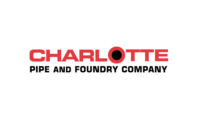Six U.S. producers of welded standard steel pipe and the
United Steelworkers (USW) filed petitions with the U.S. Dept. of Commerce and
the U.S. International Trade Commission alleging that imports of welded
standard pipe from China into the United States are being dumped and are being
subsidized by the government of China. The industry seeks to have the agencies
impose duties to off-set Chinese government subsidization and dumping. Chinese
imports of circular standard and structural pipe have increased from 10,000
tons in 2002 to 690,000 tons in 2006, a 6,800% increase. Since the unfair trade
began, four U.S. plants (out of 35) have ceased production and over 500
employees have lost their jobs. And the surge continues, with a 21% rise in
imports in the first quarter of 2007. Imports of standard pipe from China
represent over 60% of total U.S. imports of such products.
The petitioners in this case are Allied Tube & Conduit;
IPSCO Tubulars, Inc.; Northwest Pipe Co.; Sharon Tube Co.; Western Tube &
Conduit Corp.; and Wheatland Tube Co., as well as the United Steelworkers.
Armand Lauzon, CEO of John Maneely Co. (parent company of
petitioners Wheatland Tube and Sharon Tube), said, “For the past 15 months, we
have been working hard to bring more consolidation to the pipe and tube
industry in the United States and to further improve its worldwide
competitiveness. Unfortunately, in May 2006, we were forced to close our second
largest production facility located in Sharon, PA, with the loss of several
hundred jobs because of the surge of unfairly traded imports from China. Unfair
Chinese trade practices are severely hampering our efforts to achieve the
desired rates of return necessary to attract capital and to maintain
competitiveness in this critical U.S. industry.”
The unfair Chinese trade practices documented in the filing
include sales at less than fair value and subsidies to the Chinese industry.
The alleged margins of dumping range as high as 88%. The subsidies documented
include policy loans, land use programs, tax subsidies, input material
subsidies, grants and export tax subsidies. The petition also addresses an
export subsidy nominally known as a value-added tax (“VAT”) rebate program. The
petition alleges that this rebate is discretionary and excessive, and that the government
of China uses this particular program to provide an advantage to Chinese
exports in global markets.
The Chinese steel industry has been nurtured and encouraged
by the Chinese government for decades. Even so, as recently as 1990, Chinese
steel production was still less than that of the United States, the European
Union, or Japan. Today, Chinese steel production exceeds that of all three
combined. This magnitude of growth is the direct result of multiple subsidy
policies and programs established and maintained by the Chinese government.
Rick Filetti, president of Allied Tube & Conduit, said,
“Allied operates four of the most efficient pipe plants in the world
geographically spread through the U.S. market in Philadelphia, Chicago, Phoenix
and Pine Bluff, AR, to serve the entire U.S. market in a freight beneficial
manner. However, absent an end to dumping and a reduction in imports from
China, we will be forced to make reductions at our plants despite very strong
demand for our products. It would be a tragedy for the United States if the
most efficient and environmentally compliant plants in the world were shut down
and the United States nonresidential construction market became dependent on
products imported from inefficient, environmentally noncompliant, high freight
costs mills in China for this essential product to the U.S. economy. We are asking for the U.S. government to
restore the level playing field and allow the rules of comparative advantage to
hold sway.”
The domestic industry affected in this case employs
approximately 2,000 hourly workers at some 35 plants nationwide, including in
Alabama, Arizona, Arkansas, California, Illinois, Iowa, Kentucky, Louisiana,
Missouri, Ohio, Oregon, Pennsylvania, and Texas. Most employees are represented
by the United Steelworkers Union. Welded standard pipe products are used
primarily in nonresidential construction for plumbing, sprinkler systems,
structural supports, and in fencing systems. They are also used in industrial
applications to carry water, liquids, or gases at low
pressure.
The petitioners allege that the imports have adversely
affected the domestic industry and its workers. The U.S. industry has undergone
substantial consolidation in recent years. Other major import sources are
subject to antidumping and countervailing duty orders. Absent the effect of
imports from China, the industry should be thriving, but, on the contrary,
mills have shut down, workers have been laid off, market share has been lost,
and financial performance has deteriorated.
Under the antidumping and countervailing duty
statutes, the International Trade Commission will make a preliminary injury
determination by the end of July 2007; the Dept. of Commerce should issue
preliminary determinations in the countervailing duty and antidumping duty
cases in October and November of 2007.
June 7, 2007 - Steel Pipe Case Filed Against China
Looking for a reprint of this article?
From high-res PDFs to custom plaques, order your copy today!




